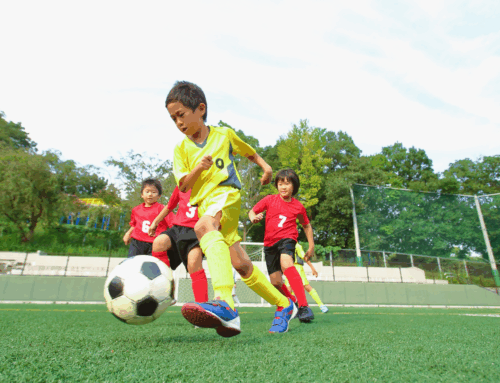Get our exclusive report. Download the iSport360 Club Switching Report Here – For Club Admins, Rec Leaders and Coaches.
Why Losing Can Be the Best Lesson in Youth Sports
In youth sports, everyone loves a win. The celebration, the smiles, the high-fives—it’s what keeps kids coming back for more. But ask any experienced coach, athlete, or parent, and they’ll likely tell you the same thing: some of the most powerful lessons come from losing. Read on to find out why losing can be the best lesson in youth sports.
It’s not about celebrating defeat. It is about learning how to grow from it. Losing isn’t the opposite of winning—it’s part of the path to getting better.
⚠️ The Truth About Losing (and Why It Matters)
Let’s be real: losing is hard. For kids, it can feel like a punch to the stomach. For parents, it’s tough to watch. But here’s the truth:
Losing builds resilience, teaches perspective, and creates space for growth.
When young athletes learn how to handle loss with maturity and reflection, they become stronger competitors—and stronger people.
💡 What Losing Teaches Young Athletes
1. Resilience
Bouncing back from a tough game is one of the most important mental skills an athlete can build. Losing teaches kids to regroup, refocus, and show up again with heart and hustle.
2. Perspective
Not every game is a championship. Losing reminds athletes that growth takes time, and that not everything in life comes easy. It helps them see the bigger picture.
3. Effort Over Outcome
Losing helps shift the focus away from the scoreboard and onto what truly matters—effort, attitude, and improvement. A player who gives 100% and still comes up short is still winning in the long run.
4. Team Accountability
After a loss, a strong team looks inward. What could we have done better? This encourages honest reflection, communication, and ownership—all key parts of leadership.
5. Grace and Sportsmanship
Knowing how to lose well teaches humility and respect. Shaking hands, congratulating the opponent, and holding your head high—those moments matter just as much as any victory.
✅ Normalize Losing
Talk about it ahead of time. Let your athlete know that losing is part of the game—and part of life. It doesn’t define their worth or talent.
✅ Focus on the Takeaways
Instead of “What went wrong?” try:
- “What did you learn today?”
- “What can you work on this week?”
- “What was one thing you were proud of?”
✅ Celebrate the Effort
Did they try something new? Did they play out of position? Did they lift up a teammate? These are the real wins, and they deserve recognition.
✅ Model the Right Response
Parents and coaches should react with calm, perspective, and encouragement, kids learn to do the same. Avoid blaming refs, the weather, or other players. Stay focused on growth.
🏆 The Hidden Victory in Every Loss
We all want our kids to succeed, but long-term success doesn’t come from an undefeated season. It comes from the grind. The setbacks. The tough conversations in the car. The practices after a tough game.
Those are the moments that shape character. Those are the moments that stick.
The next time your team walks off the field with a loss, take a breath. Then remind your athlete of this simple truth:
Losing isn’t the end. It’s a step forward.
About the Author:
Amy Masters is a proud sports mom, seasoned coach, and dedicated club administrator with over a decade of experience in youth athletics. She launched Jr Lions Field Hockey in Hunterdon County, growing it from just 40 players in its first season to over 150 by year three. Fueled by the growing passion and competitive spirit of local athletes, she went on to found Omega Field Hockey Club, now serving players across New Jersey and Pennsylvania.
A former collegiate athlete herself, Amy played field hockey at Lock Haven University, where her love for the game truly took root. Off the field (and somehow still finding time), she leads marketing for iSport360 and co-edits the Youth Sports Survival Guide—the largest youth sports newsletter in the world.
Learn more or request a demo of our youth sports software that is helping teams improve communication, organization and player development.
April 20, 2025





